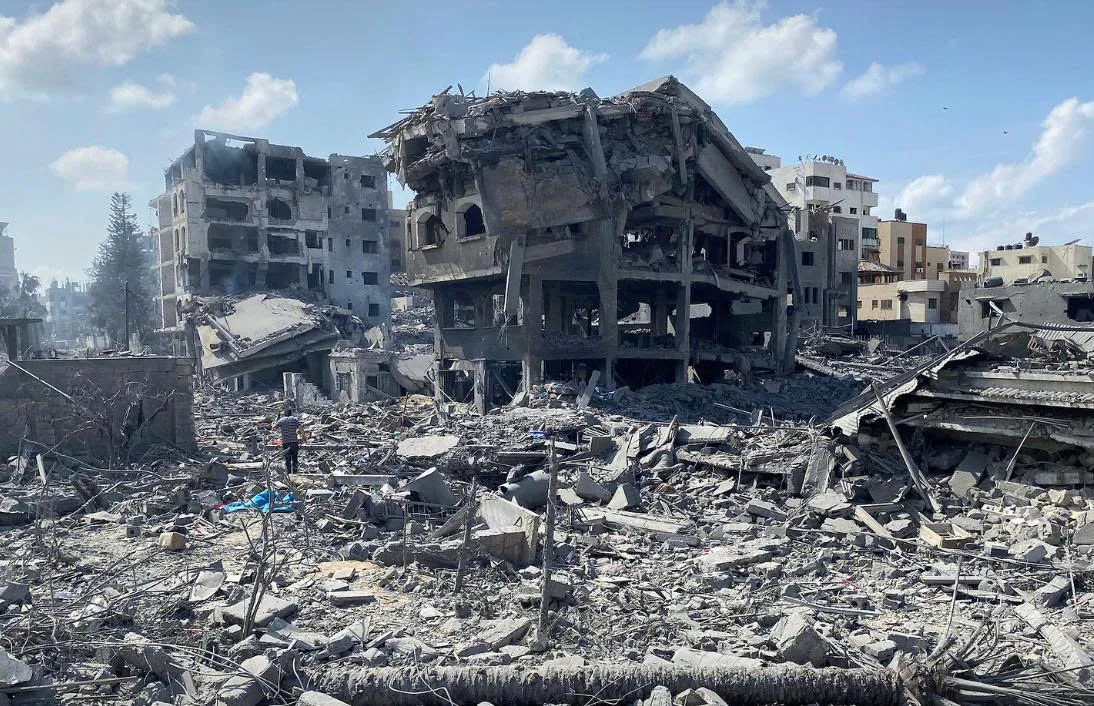
US Secretary of State Marco Rubio stated that the conflict in Gaza has caused Israel to lose significant international support, while the US finds it increasingly difficult to maintain its role of protecting allies in global forums.
US Secretary of State Marco Rubio stated that Washington cannot ignore the impact of the war in Gaza on Israel’s global standing, as the country faces growing diplomatic isolation despite US efforts to defend it.
Speaking on CBS News’ Face The Nation program, Rubio said: “Whether you believe it’s right or wrong, you cannot deny its impact on Israel’s global standing.”
His comments came after President Donald Trump told Israel’s Channel 12 that Prime Minister Benjamin Netanyahu “went too far in Gaza” and that “Israel has lost much of the world’s support.” Trump said he would work to restore that support.

For decades, the US has consistently defended its ally Israel at the United Nations. However, the Gaza conflict lasting over a year has made that role increasingly difficult to maintain. Over the past two years, the US has used its veto power six times at the UN Security Council against draft resolutions related to the Israel-Hamas conflict. The most recent instance occurred last month when the US vetoed a draft calling for an immediate, unconditional, and permanent ceasefire and demanding Israel lift restrictions on humanitarian aid to Gaza. All 14 other Security Council members voted in favor, leaving the US isolated.
Also last month, Washington agreed to a Security Council statement condemning recent attacks on Qatar’s capital Doha, though the text did not explicitly name Israel. With the Security Council deadlocked, the 193-member UN General Assembly has passed numerous resolutions calling for ceasefires and expanded humanitarian aid to Gaza. While non-binding, these resolutions clearly reflect the international community’s position.
Most recently, the General Assembly passed a resolution calling for an “immediate, unconditional, and permanent ceasefire” with 149 votes in favor, while the US, Israel, and 10 other countries voted against. Since October 2023, the body has repeatedly passed similar resolutions with increasing support – from 120 to 153 and recently 158 votes – demonstrating the international community’s widespread desire to end the conflict.
In the interview, Secretary Rubio also noted that due to the prolonged and complex nature of the conflict, many Western countries including France, Britain, Australia, and Canada have decided to recognize Palestinian statehood.
France and Saudi Arabia organized an international summit at the UN in July, followed by a second conference in September, aimed at advancing concrete steps toward a two-state solution.
Last month, the UN General Assembly endorsed the July summit declaration calling for “clear, time-bound, and sustainable steps” toward establishing a Palestinian state, with 142 votes in favor and 10 against. According to the UN, Palestinians seek an independent state in the West Bank, East Jerusalem, and Gaza Strip – territories Israel has occupied since the 1967 war.
Washington believes the two-state solution can only be achieved through direct negotiations between Israel and Palestine. However, Prime Minister Netanyahu has repeatedly stated he will not accept a Palestinian state, though he has agreed to consider the US-proposed plan to end the Gaza conflict.
The conflict began after Hamas’s attack on Israel on October 7, 2023, which killed 1,200 people and took 251 hostages. According to local health authorities, over 67,000 Palestinians, mostly civilians, have been killed in Gaza since then.
Israel and Hamas have signaled willingness to move forward with parts of US President Donald Trump’s ceasefire plan, raising hopes for a diplomatic breakthrough, though significant differences remain that need to be resolved to truly end hostilities in Gaza.
The plan reportedly meets most of Israel’s demands, including requiring Hamas to release hostages and disarm, allowing Israel to maintain forces in a buffer zone around Gaza, while not giving administrative control of the area to the Palestinian Authority.
The White House has released a 20-point document outlining ceasefire






